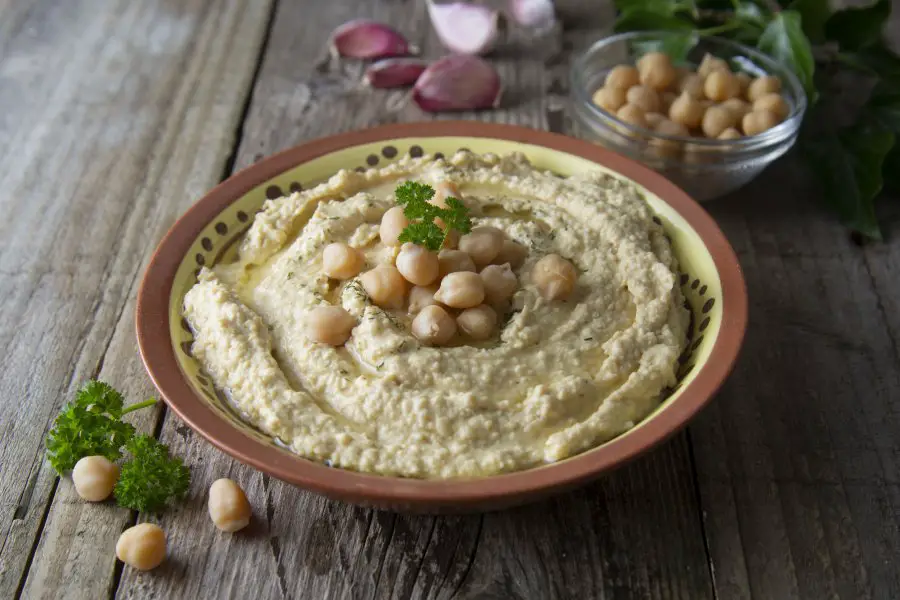Tests Found Levels Of Carcinogenic Weedkiller In Hummus
Tags: opinion
The Environmental Working Group had recently commissioned an independent laboratory test. The test was conducted to detect the presence of the notorious weedkiller in hummus. The test results found glyphosate in over 80% of the non-organic hummus and other chickpea samples. Apart from the non-organic hummus weedkiller, several organic versions also revealed small amounts of weedkiller present in them.
Glyphosate is the most popular form of herbicide in the world. It is sold by Bayer AG, previously called Monsanto, for many decades and is named Roundup. The International Agency for Research on Cancer has categorized glyphosate as a possible human carcinogen. The state of California classifies it as one of the chemicals known to cause cancer.
9 out of 27 traditional hummus samples surpassed the health-based benchmark of 160ppb by EWG. However, the legal limit of glyphosate in chickpeas according to the Environmental Protection Agency is 30 times the benchmark of EWG. These samples revealed small amounts of hummus weedkiller.
The traditional hummus products that had a high level of glyphosate were almost 15 times the benchmark of EWG. Overall, the EWG test found 10 hummus weedkillers including Sabra Classic, Whole Foods Market Original, Cava Traditional, and Harris Teeter.
Read: AI WEED KILLING ROBOTS PLAN TO SHAKE UP THE PESTICIDE BUSINESS
EWG Tests Reveal Presence Of Weedkiller
In addition, EWG also tested other samples of organic hummus as well as samples of organic chickpeas. Out of these, 2 proved as hummus weedkillers. Nonetheless, the glyphosate levels were detected in much lower concentrations as compared to the conventional counterparts. However, 1 dry chickpea sample revealed the highest concentration of glyphosate in the study.
Olga Naidenko is the Vice President of science investigations at EWG. She has informed, that lentils, peas, and beans are an affordable protein source and essential to the diet of American citizens. She further stated that these greens will be more beneficial if they are without hummus weedkiller. Toxic weed killer contaminates food products consumed by millions of Americans each day.
EWG had purchased the hummus online and from large food retailers in New York, Washington DC, San Francisco, and other metropolitan cities. The retail shops were Walmart, Aldi, Giant, Costco, Harris Teeter, Whole Foods, and others.

Glyphosate was first introduced in the markets in 1974. However, Monsanto popularized it in 1996 by genetic modification and producing ‘Roundup Ready’. This glyphosate was effective on crops resistant to herbicides.
The excessive spraying of chemicals on grains and beans before harvest for drying is worrisome. As a result of this, the glyphosate levels in the crops increase leading to hummus weedkiller.
Read FARMERS CAN USE DUCKS TO KILL PESTS RATHER THAN POISONOUS PESTICIDES
According to law, organic farmers are forbidden to use Roundup and other toxic pesticides on their crops. Therefore, pesticide drift from traditional crop fields or adulteration during processing and packaging might be the reasons for hummus weedkiller.
Alexis Temkin, an EWG Toxicologist, has expressed her preference for hummus and chickpeas as favorable consumables. She also stated that the EWG testing will result in more transparent and secured certification from the Agriculture Department.
Hummus, chickpeas, and other beans provide several nutritional benefits and are important for a healthy diet. EWG findings indicate a ban on the use of glyphosate during harvesting periods. Additionally, the EPA standard should be stricter. FDA and USDA must conduct more testing to eliminate the cancer-causing chemical from food products.
Weedkiller causes harm to humans and more precautions must be put in place immediately. EWG will now conduct glyphosate tests on oats and oats-based products. Oats have also previously shown the presence of weedkiller in the breakfast food samples.
Image credit: Erhan Inga
Leave Comment: